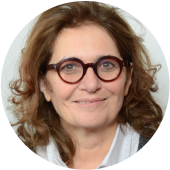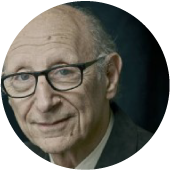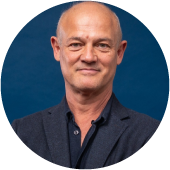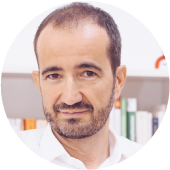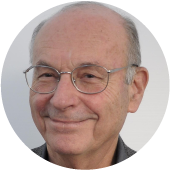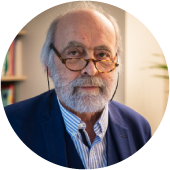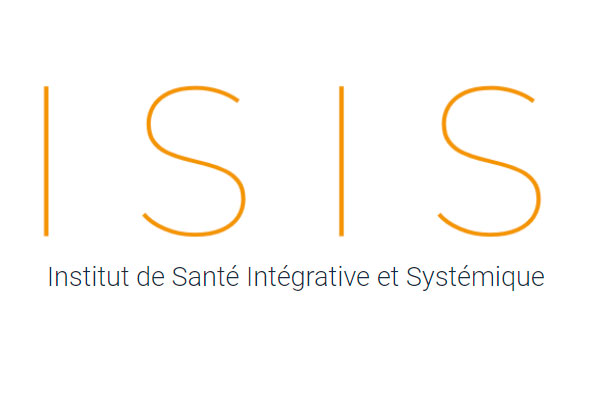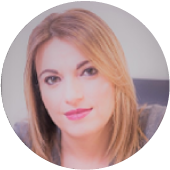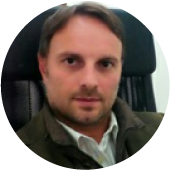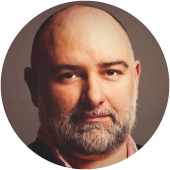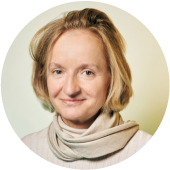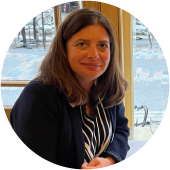Le programme - Journée 1
25 Mars 2025
Ouverture
09h00 - 09h30
![]()
Sortir d’une pensée linéaire pour agir sur le monde autrement
Pourquoi face à une même situation, certains trouvent des solutions tandis que d'autres développent des symptômes ? Cette conférence explore le passage d’une causalité linéaire à une pensée systémique, appliquée à la clinique, à l’entreprise et à l’éducation. Grégoire Vitry et Claude de Scorraille aborderont les liens entre intelligence artificielle, leadership et transformations sociétales, tout en illustrant leurs propos par des études de cas concrets. Une immersion dans une approche où changer la perception permet de transformer les interactions et les systèmes humains.
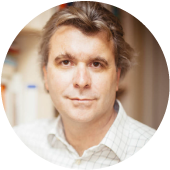 Grégoire VITRY | Docteur-chercheur en psychologie, diplômé de l'école de Palo Alto, il travaille depuis plusieurs années avec Giorgio Nardone, Nathalie Duriez, Michael Hoyt, Teresa Garcia, Jean-Jacques Wittezaele, Wendel Ray et le MRI afin de promouvoir la recherche et la formation en approche systémique. Il développe depuis 2016 SYPRENE un réseau PRN (Thurin et al., 2012) en approche systémique permettant notamment d'améliorer sa pratique en étroite collaboration avec le monde Universitaire. Il est également en charge de l'école internationale LACT et du congrès International Webinar Brief Therapy. Co-auteur "Quand le travail fait mal", "Stratégies de changement, 16 prescriptions thérapeutiques". |
| Claude de SCORRAILLE | Psychologue, psychothérapeute et co-fondatrice de LACT dont elle est la présidente. Elle dirige la Clinique des TOC et troubles anxieux en partenariat avec le centre européen the OCD Clinic. Elle enseigne et forme par le web à la clinique de la relation au sein de l’école internationale LACT. Au sein du CSAPA de Montreuil, elle a une consultation spécialisée dans les troubles de l’addiction. Elle est co-auteure de plusieurs ouvrages et donne régulièrement des conférences. |
09h30 - 10h30
![]()
|
Robert NEUBURGER | Robert Neuburger est psychiatre, thérapeute de couple et de famille. Il anime des formations et des supervisions dans différents cadres. Il est l’auteur de nombreux ouvrages traduits en plusieurs langues, dont « L’autre demande », « Le mythe familial », « Les rituels familiaux », « Les familles qui ont la tête à l’envers, revivre après un traumatisme familial », « Exister, le plus intime et fragile des sentiments et, récemment, « Écrire sa mère, à la recherche de l’amour perdu »… Humanisme et constructivisme Toute approche psychothérapique contient une vision de l’être humain. Ceci apparaît le plus clairement au travers de la finalité attribuée à l’approche considérée. Les mêmes situations peuvent donner lieu à des interprétations différentes qui dépendent de l’outil mental utilisé par observateur, la façon dont il construit sa réalité. Certaines lectures sont déshumanisantes qui considèrent les humains comme de machines « malades » qu’il s’agira de réparer. Une vision humaniste consistera à prendre en compte le fait que, de façon naturelle, l’être humain est capable de créativité et, en particulier, confronté à des situations difficiles. Pourquoi, face à certaines situations, les patients que nous rencontrons n’ont-ils pas trouvé de solutions sinon de générer des symptômes pour signifier leur souffrance psychique ? L’objectif du travail thérapeutique ne sera pas centré sur des symptômes, souvent qualifiés aujourd’hui de « maladies », mais de leur permettre de retrouver leurs capacités auto-thérapeutiques perdues. Ce dernier point sera développé lors de la rencontre. |
Pause 30 minutes
Conférence n°1 - Clinique / Education
11h00 - 12h30
En partenariat avec
Modérateur : Olivier Brosseau
![]()
|
Alessandro BARTOLETTI | Psychologue, psychothérapeute, docteur en philosophie, essayiste et conférencier en psychothérapie stratégique brève, directeur de l'IPPS - Institut de psychologie et de psychothérapie stratégique de Rome. Auteur de nombreux ouvrages, dont : La peur de la maladie. Psychothérapie stratégique brève de l'hypocondrie », (avec Giorgio Nardone), 2023. L'apprenant stratégique. Comment résoudre rapidement les problèmes d'étude, (traduction française 'L'étudiant stratège'), 2013. Les mauvaises et vilaines pensées. Les obsessions taboues : comment s'en débarrasser. FrancoAngeli, 2019. La panique, l'anxiété et la peur. Un guide stratégique pour les aspirants courageux. FrancoAngeli, 2021. L’étudiant stratège: surmonter le blocage de l’étudiant grâce à la thérapie brève stratégique Le séminaire abordera le blocage des études sous l'angle de la psychothérapie stratégique à court terme : comment il fonctionne et comment le surmonter. Les 5 profils psychologiques des étudiants bloqués et leurs différentes tentatives de solutions seront présentés, ainsi que des stratagèmes créatifs pour transformer le devoir d'étudier en plaisir d'étudier. |
|
Jean-Paul GAILLARD | Psychologue, Thérapeute systémicien de la famille et du couple, membre titulaire de la Société française de thérapie familiale (SFTF) et de l'European Family Therapy Association (EFTA) Il est aussi Professeur honoraire des universités, et a cofondé l'institut systémique troisième génération (IS3G). Gaillard J-P. 2023. (9ième éd. Augmentée) Enfants et adolescents en mutation: mode d’emploi pour les parents, éducateurs, enseignants et thérapeutes. ESF éditeur Paris – Traduction en langue italienne et espagnole. Un problème de causalité Le point de vue complexe ne « voit » les humains, les artéfacts qu’ils créent et les sociétés au sein desquelles ils se meuvent, ne les dessine donc, qu’à travers leurs couplages, à travers les différents types d’interaction qui les relient indéfiniment, verticalement (entre génétique et Histoire) et horizontalement (entre perturbations et destructions)… tant il est vrai qu’un humain n’existe et donc n’est descriptible, qu’en tant qu’il est un élément composant d’une « machine » communicante et relationnante, et rien de plus. Ici, le point de vue complexe et le point de vue systémique se superposent étroitement, c’est ce que Jean-Paul Gaillard tentera de développer auprès des participants. |
|
Serge HEFEZ | Serge Hefez est Psychiatre des Hôpitaux. Il exerce comme psychanalyste et thérapeute familial et conjugal. Responsable de l’Unité de thérapie familiale dans le service de psychiatrie de l’enfant et de l’adolescent à l’hôpital de la Pitié Salpétrière à Paris, il est également chef d’un service de soutien psychologique consacré aux problématiques liées aux identités sexuelles et de genre rattaché au GHU PARIS Psychiatrie et Neurosciences Ses essais sur les relations conjugales et familiales « La Danse du couple » et « Quand la famille s’emmêle » traduits dans plusieurs langues, ont connu un très vif succès. Il a publié en 2008 “Dans le coeur des Hommes”, étude sur l’identité masculine qui a obtenu le Prix Psychologie-FNAC 2008 et « La Sarkose obsessionnelle », essai sur le narcissisme contemporain. « Le Nouvel ordre sexuel » est paru en 2013, puis « La Fabrique de la famille » en 2016, et enfin « Transitions. Réinventer le genre » chez Calmann-Lévy en 2021 Il participe à de très nombreux colloques nationaux et internationaux et intervient régulièrement dans la presse écrite et audiovisuelle ; il a été notamment chroniqueur à France Inter, et producteur à France Culture. Les défis des transitions de genre pour les professionnels de l'éducation Les questions de genre, et en particulier la transidentité, sont au cœur du débat public aujourd'hui, y compris parmi les professionnels de la santé mentale. La transidentité touche en effet à des questions fondamentales : les droits individuels, la définition de l'identité, les normes sociales et la place de l'État dans la régulation du corps et de la vie privée. Son caractère polémique tient au fait qu'elle remet en cause nos repères traditionnels, tout en étant instrumentalisée par des courants politiques opposés. Ce débat ne se limite pas au domaine des minorités sexuelles, il illustre un affrontement plus large sur la manière dont les sociétés occidentales redéfinissent le rapport entre identité, droits et normes sociales au XXIe siècle. Quelle place pouvons-nous occuper aujourd’hui dans ce débat ? |
Conférence n°2 - Entreprise et société
11h00 - 12h30
![]()
![]()
En partenariat avec
![]()
![]()
Modérateur : Grégoire VITRY
![]()
|
Laurent BIBARD | Professeur à l’ESSEC, où il enseigne la philosophie politique, la sociologie, et l’économie. Responsable de la filière Management et philosophie, il travaille en particulier sur les dynamiques de vigilance en situation de crise. Il est également conseiller scientifique du Métalab sur les relations entre éthique et intelligence artificielle. L'intelligence artificielle n'est pas une question technologique Nous vivions dans un monde régulièrement fasciné par ce que l'on dit de l'IA - "intelligence artificielle", si mal nommée. Il n'y a pas d' "intelligence" artificielle : il y a du calcul artificiel. Merveilleusement efficace et utile. Mais qui n'est que du calcul. Se demander à quoi il sert, pourquoi nous en voulons, que voulons-nous en faire pour nos vies, et pour les enfants de nos enfants, sont des questions spécifiquement humaines. On travaillera à recentrer le débat sur l' "IA" autour des questions essentielles que ces technologies véhiculent. |
|
Aurélien BAELDE | Aurélien est ingénieur et chercheur en apprentissage automatique (Machine Learning) et apprentissage profond (Deep Learning). Il est actuellement membre de l’équipe d’intelligence artificielle d’Alan. Alan est un leader français de l’assurance santé numérique, couvrant plus de 550 000 membres. Assistance Médicale Alimentée par l’IA Mo, l’assistant médical d’Alan, utilise l’IA Générative pour fournir des conseils médicaux instantanés et personnalisés via une interface de chat, avec validation par des médecins sous 15 minutes. Ce service comble des lacunes d’accès aux soins en offrant une alternative fiable aux recherches non vérifiées sur Internet. Les premières études montrent des réponses IA plus empathiques et de qualité supérieure que celles des médecins traditionnels. Mo peut réduire les consultations inutiles, garantir un suivi cohérent et démocratiser l’accès à des informations médicales précises. Alan, leader en santé numérique, combine assurance, prévention et services digitaux, avec 550 000 membres en France, Belgique et Espagne, et vise la rentabilité d’ici 2026. |
|
Xavier BRIFFAULT | Chercheur en sciences sociales et philosophie de la santé au CNRS Recompositions du champ de la santé mentale à l'heure des IA génératives et des objets connectés Les éléments épidémiologiques et expérimentaux en faveur d'une impasse paradigmatique du modèle psychiatrique international actuel s'accumulent. |
Pause déjeuner
12h30 - 14h00
Accueil
14h00 - 14h05
![]()
| Olivier BROSSEAU | Thérapeute, coach, superviseur et formateur en approche systémique stratégique, associé à LACT. Il enseigne à l'IAE de Paris au sein du Master des Administrations et des Entreprises le module "Organisations et comportements". |
Conférence
14h05 - 15h30
Modérateur : Grégoire VITRY
![]()
|
Boris CYRULNIK |
Neurologue, psychiatre, éthologue et psychanalyste français, il est responsable d'un groupe de recherche en éthologie clinique à l'hôpital de Toulon-la-Seyne (1972-1991). Il publie son premier ouvrage Mémoire de singe et parole d’homme en 1983. Boris Cyrulnik est surtout connu pour avoir développé le concept de «résilience» (renaître de sa souffrance). Il a également participé à la commission Attali sur les freins à la croissance, dirigée par Jacques Attali et installée le 30 août 2007 par Nicolas Sarkozy. Il a publié une trentaine d’ouvrages. Le découpage des mots et les mots de la folie |
|
Gérard OSTERMANN |
Gérard Ostermann est médecin, professeur de thérapeutique en médecine Interne. Diplômé de thérapie cognitive et comportementale et de pharmacologie. Spécialiste des conduites addictives, de l'anorexie et de la prise en charge de la douleur et des traumatismes. Il est également spécialiste en cardiologie et angiologie. Médicalisation de l’existence et dé-prescription La médicalisation désigne un processus par lequel on en vient à définir et à traiter des problèmes non-médicaux comme des problèmes médicaux, habituellement en les qualifiant de maladies ou de troubles. |
|
Grégoire VITRY |
Docteur-chercheur en psychologie, diplômé de l'école de Palo Alto, il travaille depuis plusieurs années avec Giorgio Nardone, Nathalie Duriez, Michael Hoyt, Teresa Garcia, Jean-Jacques Wittezaele, Wendel Ray et le MRI afin de promouvoir la recherche et la formation en approche systémique. Il développe depuis 2016 SYPRENE un réseau PRN (Thurin et al., 2012) en approche systémique permettant notamment d'améliorer sa pratique en étroite collaboration avec le monde Universitaire. Il est également en charge de l'école internationale LACT et du congrès International Webinar Brief Therapy. Co-auteur "Quand le travail fait mal", "Stratégies de changement, 16 prescriptions thérapeutiques". Sortir d'une pensée linéaire avec le diagnostic systémique stratégique Le diagnostic est une étape clé du parcours thérapeutique, influençant tant le traitement que l’identité du patient. Si le modèle psychiatrique dominant repose sur une classification des troubles et une approche médicamenteuse, il présente des limites : surdiagnostic, faible prise en compte du contexte. Le diagnostic systémique propose une alternative interactionnelle et évolutive, analysant les boucles relationnelles qui maintiennent le problème. Rapide et efficace, il favorise l’implication du patient. Loin d’opposer ces modèles, l’avenir réside dans leur articulation, intégrant une lecture systémique en psychiatrie pour des interventions plus ciblées et adaptées. |
Pause 30 minutes
Conférence n°1 - OCD Clinic
16h00 - 17h35
Modératrice : Claude de SCORRAILLE
![]()
![]()
La thérapie indirecte des TOC, basée à la fois sur la peur et le plaisir
| Claudette PORTELLI | Conférencière et praticienne de la pensée systémique - PhD en Psychologie, psychologue du CTS, formatrice et coach (Italie - Malte). Auteure de "La connaissance par le changement", "Obsessions , compulsions , manies : les comprendre et les vaincre rapidement" et "Le nuove dipendenze". Thérapie indirecte pour les TOC basés sur la peur et le plaisir Les TOC sont déjà considérés comme un trouble très intimidant en raison de leurs différentes variantes et aussi parce qu'ils semblent souvent illogiques, ce qui fait que les proches, mais aussi les professionnels, se sentent désemparés. De plus, il existe des cas qui sont encore plus résistants à la thérapie, des individus qui refusent ou sabotent la thérapie. Que faire dans ces cas-là ? Comment interviewer ? L'objectif de cet atelier est de présenter l'approche stratégique et systémique des TOC en mettant l'accent sur les cas très résistants, où, comme le dit l'Ancien Stratgem, « il faut partir après pour arriver avant » en utilisant l'approche indirecte. |
|
Matteo PAPANTUONO | Psychologuen, psychothérapeute et formateur Matteo Papantuono compte plus de quinze ans d'expérience dans l'enseignement dans de nombreuses écoles italiennes. Il est le directeur de la Clinique des TOCs à Ancône en Italie. Avec la collaboration de Padraic GIBSON |
Conférence n°2 - ISIS
16h00 - 17h30
Modérateur : Grégoire VITRY
![]()
Vers une approche intégrative de la santé
L’approche purement biologique et linéaire en médecine montre ses limites, notamment dans la perception des patients qui, tout en reconnaissant les compétences scientifiques des médecins, déplorent un manque de prise en compte des dimensions relationnelles et sociétales de leur prise en charge. Face à cet écueil, la médecine intégrative émerge comme une réponse adaptée, combinant la médecine conventionnelle à des approches complémentaires non médicamenteuses et validées. En considérant le patient comme un système complexe, cette approche pluridisciplinaire favorise une prise en charge globale et personnalisée, centrée sur la qualité de vie et le bien-être. Ainsi, les parcours de soins s’adaptent aux besoins spécifiques de chaque individu, intégrant des stratégies sécurisées de prévention et de santé durable.
|
Gérard OSTERMANN |
Gérard Ostermann est médecin, professeur de thérapeutique en médecine Interne. Diplômé de thérapie cognitive et comportementale et de pharmacologie. Spécialiste des conduites addictives, de l'anorexie et de la prise en charge de la douleur et des traumatismes. Il est également spécialiste en cardiologie et angiologie. |
|
Antoine BIOY | Professeur de psychologie (Université de Paris 8 - Laboratoire : Psychopathologie et Processus de Changement), Psychothérapeute hypnothérapeute au CHU de Bordeaux (Institut de Médecine Intégrative et Complémentaire - IMIC). Responsable scientifique de l’Institut Ipnosia et de l’Agence des Médecines Complémentaires Adaptées. Vice Président Recherche de la « Société de Psychologie et de Psychopathologie du Somatique », Coordinateur France pour la « Society for Psychotherapy Research », membre de la SFETD et du CUMIC. Rédacteur en chef du "Journal de l’Hypnose et de la Santé Intégrative" (Dunod). Santé Intégrative et processus de changement : à quelles conditions faire plus peut être mieux? |
| Julien NIZARD | Julien Nizard, est Vice Doyen à la Faculté de Médecine, rhumatologue, médecin de la douleur et gériatre au Centre Hospitalier Universitaire de Nantes. Il est docteur en médecine et docteur de l’Université de Nantes, Habilité à Diriger les Recherches, et Professeur de Thérapeutique et de Médecine de la douleur (CNU 48-04) à l’Université de Nantes. |
Conférence n°3 - Entreprise
16h00 - 17h30
Modérateur : Olivier BROSSEAU

![]()
L’entreprise peut-elle être humaniste ?
Depuis 1837, Hermès ne peut pas créer et manufacturer du beau sans qualité des liens.
|
Olivier FOURNIER | Né en 1961, diplômé de l’EM Lyon Business School et titulaire d’un DESCF (diplôme d’études supérieures comptables et financières), Olivier Fournier est entré chez Hermès en 1991, où son parcours professionnel l’a conduit de la finance et l’audit interne chez Hermès International à la direction générale du pôle Textiles à Lyon, puis en 2008, à la direction générale du pôle artisanal Hermès Maroquinerie-Sellerie. Depuis 2015, il est directeur général en charge de la gouvernance et du développement des organisations, et membre du comité exécutif d’Hermès. A ce titre il supervise les directions des ressources humaines groupe, du juridique, de l’audit, des risques et des assurances, du développement durable, de l’immobilier et d’Hermès Services Groupe. En 2016, il a succédé à Pierre-Alexis Dumas à la présidence de la Fondation d’entreprise Hermès. |
|
Sophie DUVERNE | Sophie Duverne exerce la fonction de Directrice Talent acquisition & Talent development à la DRH du Groupe Hermès. Elle a rejoint Hermès en 1990 et y a œuvré depuis lors dans des rôles dédiés au développement des ressources humaines. La transmission, courant fort de la chaîne humaine d’Hermès Hermès maison familiale, indépendante depuis 1837 anime son projet d’entreprise dans un contexte combinant croissance, complexité et exigence en fortifiant tous les maillons de la chaîne humaine par la transmission. Celle-ci prend des formes multiples et elle est un des vecteurs de l’accomplissement et du développement des équipes. |

|
Isabelle LUGNIER | Actuellement DRH du studio d’animation Illumination Paris, Isabelle Lugnier a acquis une expérience de direction internationale des ressources humaines dans les univers de la grande consommation (Colgate Palmolive, Energizer), de l’entertainment (Walt Disney Feature Animation, Groupe CANAL +) et du luxe ( Shiseido, groupe Richemont). Formée à l’approche systémique de Palo Alto et la psychologie positive, Isabelle Lugnier enseigne également dans le master media de SciencesPo Paris. L’ère de l’IA, quel progrès pour l’humain et le lien social ? |

